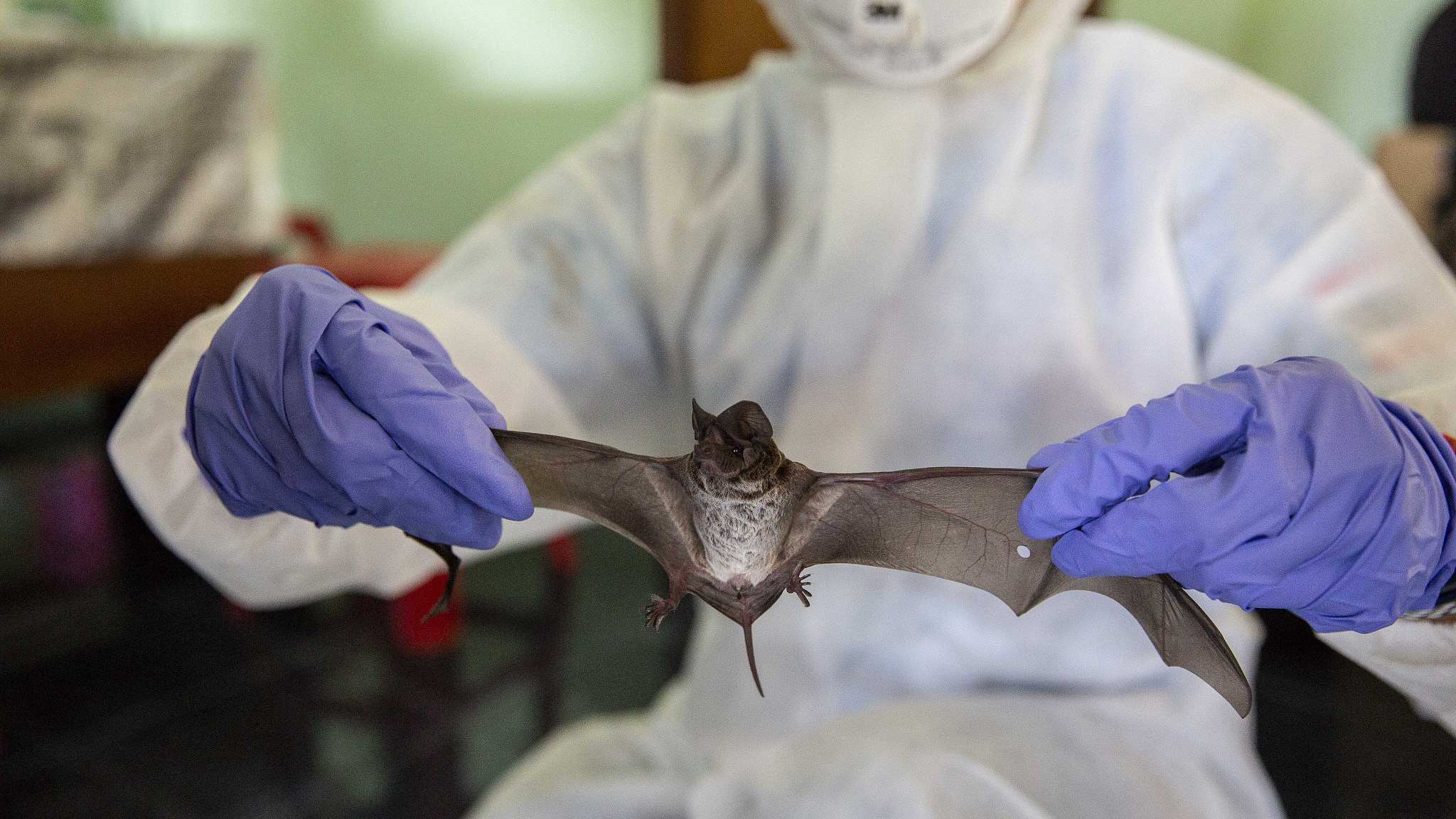
Bat sampling in a laboratory in Ratchaburi Province, Thailand, September 12, 2020. /CFP
Bat sampling in a laboratory in Ratchaburi Province, Thailand, September 12, 2020. /CFP
A coronavirus related to the one that causes COVID-19 has been found in bats in a wildlife reserve in Thailand, according to a study published in the journal Nature Communications on Tuesday.
Led by Professor Wang Linfa of Duke-NUS Medical School, a team of researchers carried out surveillance investigations in Southeast Asia with a focus on bats and pangolins, as these were previously found to carry viruses related to SARS-CoV-2, the virus that is responsible for the COVID-19 pandemic.
They found that a coronavirus, named RacCS203, in horseshoe bats in an artificial cave at a wildlife sanctuary in eastern Thailand was 91.5 percent similar to SARS-CoV-2 in their genomes, and was also closely related to RmYN02, the one previously found in southwest China's Yunnan Province.
The researchers also detected SARS-CoV-2 neutralizing antibodies in bats of the same colony and in a pangolin at a wildlife checkpoint in the south of Thailand, indicating that SARS-CoV-2-related coronaviruses are circulating in Southeast Asia, BBC reported, citing the researchers.
The study has not been able to pinpoint the origin and intermediate host of the novel coronavirus, but researchers said it helps extend the geographic distribution where related coronaviruses have been found.
"Southeast Asia, due to its richness in both relevant bat species diversity and population density, may be more likely to be a hotspot for such viruses," they said, calling for cross-border surveillance, which is "urgently needed to find the immediate progenitor virus of SARS-CoV-2."

